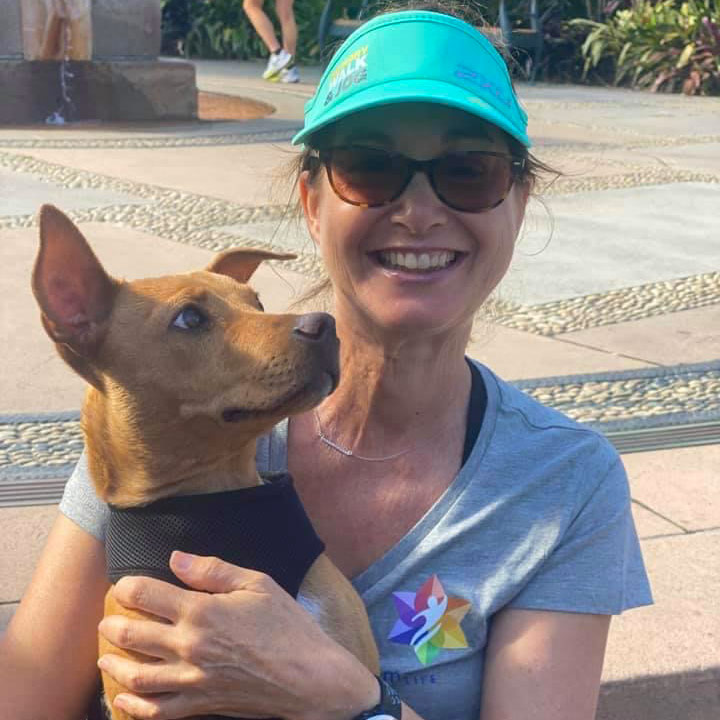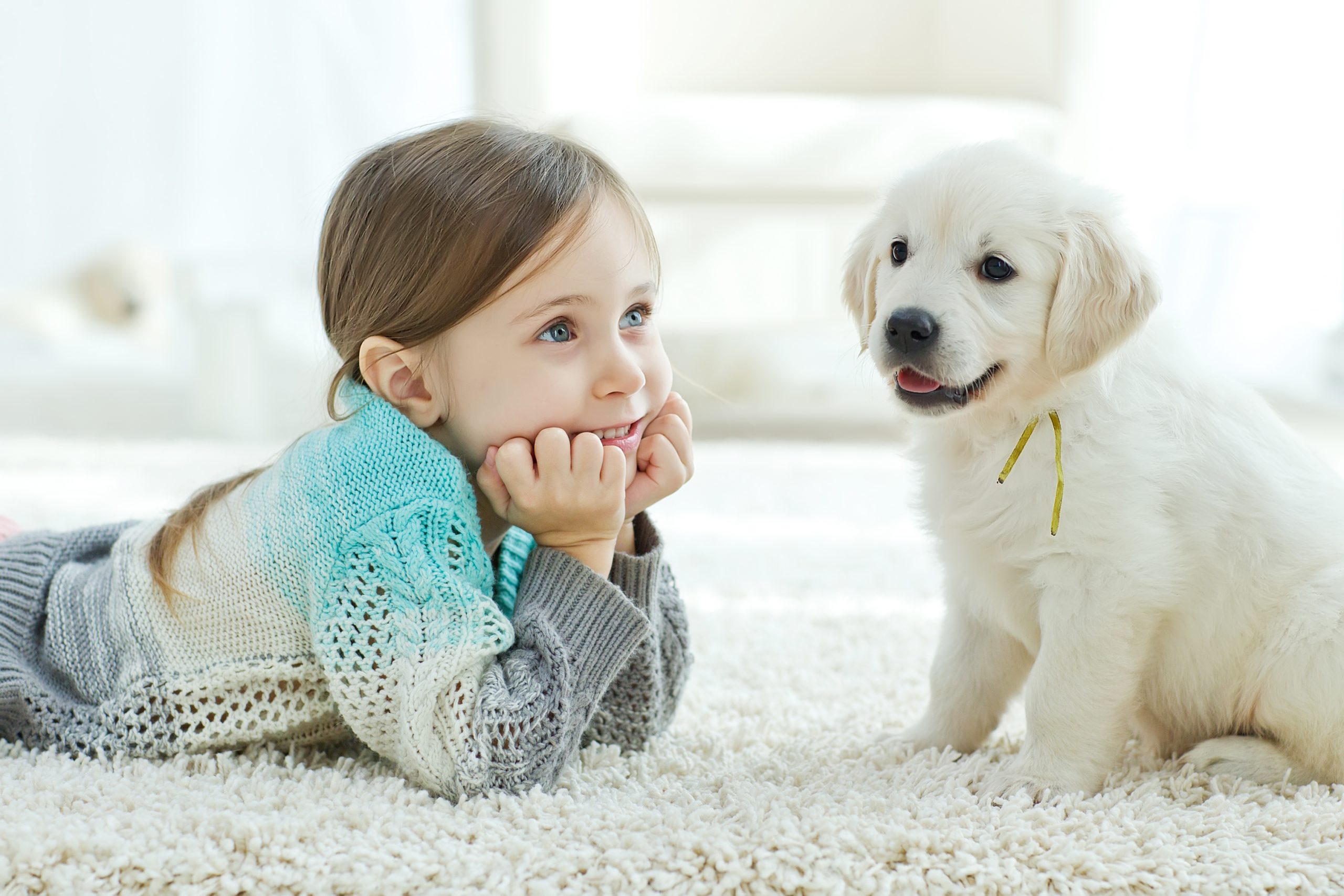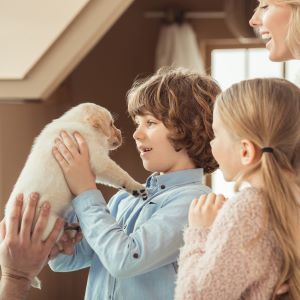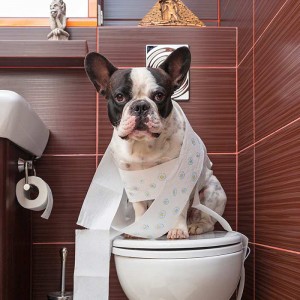Puppy socialisation and its importance
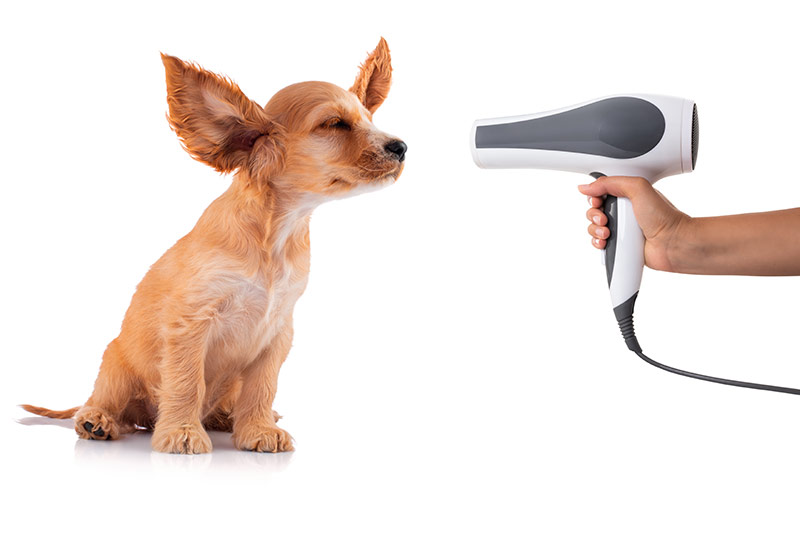 What does puppy socialisation mean?
What does puppy socialisation mean?
Puppies get accustomed to whatever they are exposed to at a young age. If puppies only know the three or four people in their family, they are likely to become fearful or aggressive towards other people as they grow up. Similarly, they will be scared of buses, bicycles, other dogs or even people wearing hats or sunglasses if they have never been exposed to them.
Puppy socialisation means controlled positive exposure to, and interaction with, various objects, sounds, smells, people, animals and environments. It is the specific learning process that allows dogs to function effectively in society. Dog socialisation enables dogs to learn to accept the close proximity of people as well as other dogs and animals.
Why is puppy socialisation so important?
Unfortunately, most people are unaware of the importance of actively socialising their dogs when they are young puppies. It is one of the most important things to do with your puppy to help build its confidence and become a well-balanced dog.
To minimise the likelihood of problematic puppy behaviour persisting into adulthood, it is important that a carefully planned dog socialisation program is implemented early. This will enable the puppy to receive controlled exposure to the range of people, places, other animals, noises and situations that he is likely to encounter in the real world and learn to respond appropriately to them.
Download our Puppy Guide
We know that bringing home & looking after a new puppy can be a big challenge! Get more tips from puppy experts about all aspects of looking after your new puppy, including toilet training, socialisation, health & much more.
When is the puppy socialisation period?
The puppy socialisation period starts at 4 weeks of age and continues to about 3 months of age. This time span is the optimal puppy socialisation window because it is the critical age for the puppy to learn appropriate dog socialisation skills.
Up until 8 weeks, the puppy is ideally still with its mother and litter mates, and mum will teach her offspring species-specific puppy behaviour – in other words, how to be dogs. For example, she teaches them how to bite and what it feels like to be bitten, and they learn not to bite too hard. It is important for puppies to learn this lesson when they are young, so that they do not hurt people or other dogs as adults.
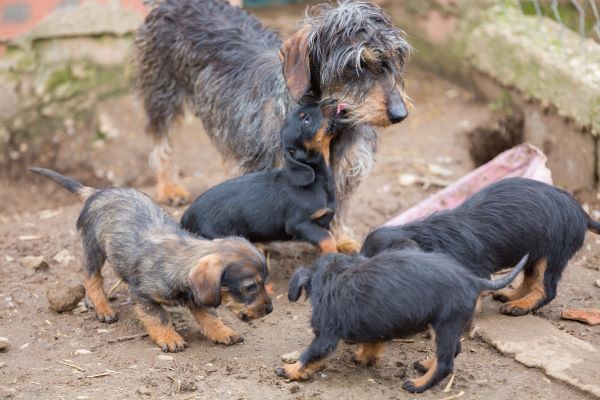
Good breeders will commence dog socialisation training before puppies go home with their new owners at around 8 weeks, introducing them to lots of new experiences so that they won’t be afraid of them later. Positive interactions with people at this young age play an important role in how they continue to interact as older puppies and into adulthood.
For the new owner, the best time to focus on dog socialisation is from 8 to 16 weeks of age, as during this time the puppy is in a ‘sensitive phase’ and most learning is permanent. This is the time when you can have the greatest impact on your new puppy’s social development. Puppies of this age are like little sponges and take things in very easily.
Additionally at this age, sociability outweighs fear, and the puppy will most readily accept and adapt to new people, places, animals and experiences. Be aware that the same way your puppy will remember positive encounters forever, it will also remember negative experiences. So, try and make sure that all experiences for your puppy are positive until at least around 16 weeks.
The window for optimal puppy socialisation closes at around three months of age, when puppies start to become nervous and fearful of unfamiliar people and events. Additionally, from 3 months of age puppies become increasingly independent and suspicious of new things that they think could pose a potential risk to them. Failure to socialise adequately before 3 months of age can make it difficult for puppies to learn from exposure to new things in a way that leads to positive puppy behaviour.
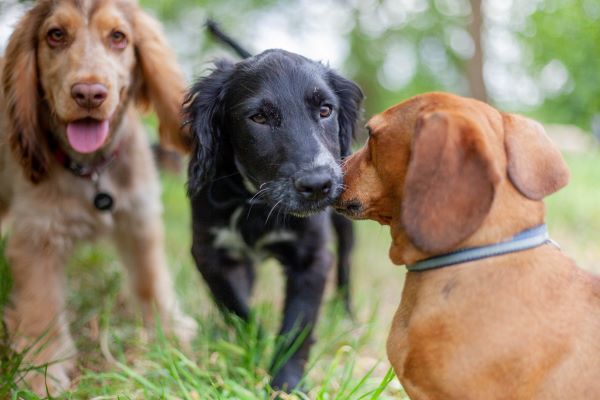
Puppy behaviour
At birth, puppies possess the rudiments of their future personality and temperament. Genetics will influence a puppy’s behaviour, with some breeds being more sociable than others. Particular behavioural traits may also be inherited from parents, notwithstanding that individual puppies in a litter will all have different personalities; some may be sociable, affectionate, and playful, while others may be overly shy or aggressive.
By the time puppies begin to interact with the world, they have the potential to develop a range of behaviours, positive as well as negative. What they are exposed to during their critical learning period will largely determine the specific behaviours they later exhibit as older puppies and adults.
It cannot be emphasised enough that experiences during the first three to four months of life are extremely important for a puppy’s long-term development. Well-socialised puppies will feel comfortable with people and other animals and will begin initiating interaction with them. Puppies that experience poor or insufficient socialisation during the optimal puppy socialisation period are more likely to develop behavioural problems later in life, including fear, avoidance and/or aggression. These may be evident in behaviours such as excessive barking, growling at visitors and lunging at other dogs on walks.
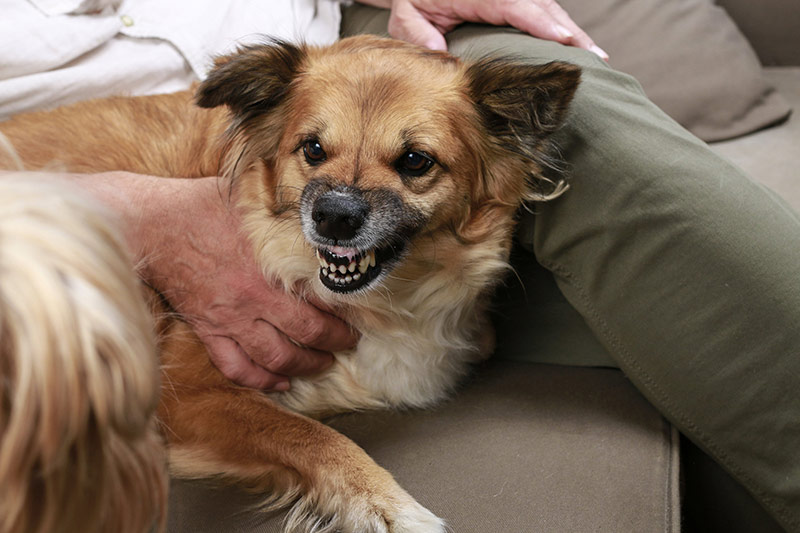
For optimal puppy behaviour, it is essential to expose the pup at this young age to many of the people, dogs, objects, sounds and environments it may encounter in later life, including being left alone for short periods, visiting the vet and travelling in the car. Another way facilitate positive puppy behaviour is by attending dog socialisation classes. After any form of dog socialisation training, puppies should continue to be regularly exposed to the things they have learned from to reinforce the positive behaviour, otherwise this will be forgotten.
How to socialise your puppy
Use treats: Feeding your puppy treats while he is experiencing new things will help to create a positive association.
Create space: Introduce your puppy to new encounters at a distance first and let your puppy show willingness to move forward to say hello to the new object/ person/dog/other animal. Dragging a scared puppy to a running lawn mower, for example, and expecting treats to solve the problem will not work in the long run.
Move at your puppy’s pace: Some dogs are more confident; others are shy or timid and some are boisterous and show no fear. Take your time when socialising your puppy and don’t rush him into a new situation. It might just scare him.
Break new encounters down: A vacuum cleaner has different elements – the object itself, plus the sound and the fact that it moves. Introduce your puppy to all three of them independently before you add them together.
Don’t overwhelm: It is important to socialise your puppy to as many things as possible at a very young age (8-16 weeks) but take care not to overwhelm your puppy by doing too much too soon.
Your puppy and dog parks
Socialisation doesn’t just mean taking your puppy to the dog park and exposing him to multiple dogs. Dog parks are often uncontrolled environments and your puppy could easily get a fright with dogs approaching, chasing or snarling at him. And it is fairly common for some adult or older dogs not to like puppies. A negative experience at a young age could result in your puppy being scared of other dogs for the rest of his life.
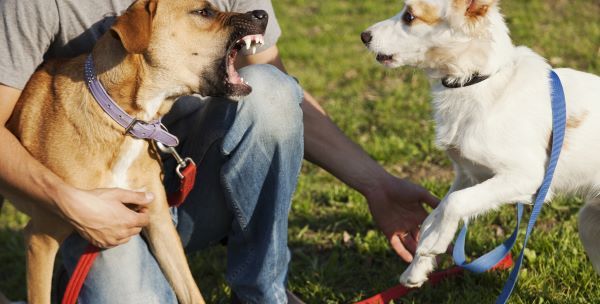
If you want to expose your dog safely to other dogs, take him to a strictly on-leash dog park where all dogs are on a leash and, as per the guidelines above, remember to take it slow.
It is also important not to over-socialise your puppy as he may become too needy of constant stimulation. Your puppy doesn’t have to play with other dogs all the time and every day.
Pups that can amuse themselves and tolerate being left alone for short periods may be less likely to develop over-attachment to owners and separation anxiety when the owner leaves.
Introducing your puppy to new experiences
Continued positive exposure to a variety of people and other animals, new environments and stimuli, as your puppy grows and develops, is an essential part of dog socialisation training and maintaining positive puppy behaviour.
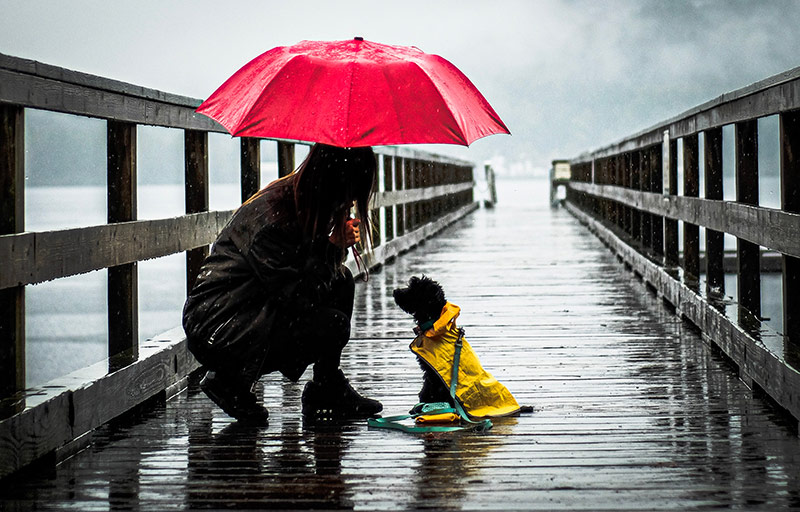
Try to implement all, or most, of the following:
- Exposure to a wide range of people, including children, toddlers, babies, women and men, including men with beards, caps, sunglasses, hoodies, boots, etc.
- Exposure to household noises such as vacuum cleaners, music, television, blenders, banging doors, power tools, microwaves etc.
- Gentle handling of your puppy’s ears, feet, tail, mouth, and collar daily
- Travelling in the car
- Spending time in a crate
- Being alone for short periods of time
- Walking on a lead
- Walking on different surfaces like concrete paths, bitumen, gravel, sand, grass and wet grass
- Exposure to different dogs (who have been vaccinated)
- Exposure to other animals, including cats, in a positive way
- Providing meals in food puzzle toys
- Providing toys to play with, both with you and alone
- Commencing house-training
- Teaching him to sit when greeting people, instead of jumping up
- Attending dog socialisation classes
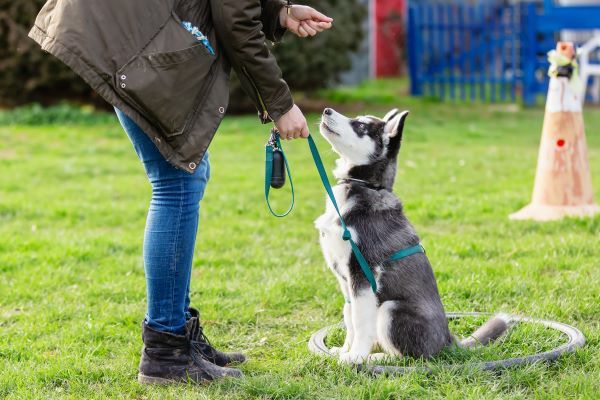
Socialisation program for your puppy
Because getting your puppy used to all sort of things in life is so important, we have provided you with a socialisation plan for you and your family to help with socialising your puppy.
Puppies are very adventurous and highly accident prone, and often end up hurting themselves whilst they are still growing. Their underdeveloped immune system means they are also vulnerable to getting infections and catching diseases.
Consider pet insurance to help protect you and your puppy from the start. Learn more about Puppy Insurance
Bow Wow Meow Pet Insurance can help protect you and your dog should an unexpected trip to the vet occur.
-
Find out more about our dog insurance options
-
Get an online pet insurance quote
Bow Wow Meow is proud to have been awarded winner of Canstar’s ‘Most Satisfied Customers’ Award in the Pet Insurance category for both 2024 and 2025!
Bow Wow Meow is proud to have been chosen as Product Review’s Pet Insurance Award Winner every year from 2018 to 2025! This is based on 2,995 independent customer reviews (as at 21/01/2025), with an overall rating of 4.3*
Google Review rating = 4.5* (based on 968 reviews)
Trust Pilot rating = 4.6* (based on 531 reviews)
Bow Wow Meow is proud to have been chosen as Product Review’s Pet Insurance Award Winner every year from 2018 to 2025! This is based on 2,995 independent customer reviews (as at 21/01/2025), with an overall rating of 4.3*
Google Review rating = 4.5* (based on 968 reviews)
Trust Pilot rating = 4.6* (based on 531 reviews)
Bow Wow Meow has been chosen as a winner in the Finder Pet Insurance Awards 2024. Finder’s panel of experts analysed over 140 quotes to award our Ultimate Care Plan the winner of the “Pet Insurance – Value” category.

